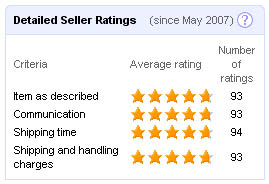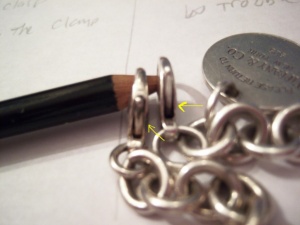Difference between revisions of "EBay"
(→Ethical Implications) |
|||
| Line 41: | Line 41: | ||
===Shill bidding=== | ===Shill bidding=== | ||
Shill bidding is major concern for buyers and against eBay's policies. Shill bidding is defined as when someone, usually someone the seller knows or the seller himself/herself, "bids on an item with the intent to artificially increase its price or desirability" <ref>[http://pages.ebay.com/help/policies/seller-shill-bidding.html Shill bidding policy] ''eBay Policy.'' Retrieved 2011-12-18.</ref> Sellers shill bid for a couple reasons. The most common reason is to raise the price in order to increase one's profit. Shill bidders argue that buyers are not harmed with shill bidding since it is their own decision whether or not to bid on the item at the price it is at. Another reason why sellers shill bid is to avoid eBay fees for setting reserves. | Shill bidding is major concern for buyers and against eBay's policies. Shill bidding is defined as when someone, usually someone the seller knows or the seller himself/herself, "bids on an item with the intent to artificially increase its price or desirability" <ref>[http://pages.ebay.com/help/policies/seller-shill-bidding.html Shill bidding policy] ''eBay Policy.'' Retrieved 2011-12-18.</ref> Sellers shill bid for a couple reasons. The most common reason is to raise the price in order to increase one's profit. Shill bidders argue that buyers are not harmed with shill bidding since it is their own decision whether or not to bid on the item at the price it is at. Another reason why sellers shill bid is to avoid eBay fees for setting reserves. | ||
| + | |||
| + | ===Sniping=== | ||
| + | Sniping is a commonly practiced bidding tactic on eBay. Snipers wait until the last minute or even couple seconds to place their maximum bid. Biding extremely late is beneficial to buyers because when bids are placed earlier it generates interest in the item. However sniping can unfavorably affect the seller and other buyers. For the seller, the item often sold at a lower price since there are less bids and usually less interest. Other buyers do not appreciate sniping because it is not in the spirit of auctions. Also, by bids placed by snipers often cannot be evaluated and countered by other buyers since there is little time left in the auction. Sniping is not against eBay's policies and it actually recognized as "part of the eBay experience" <ref>[http://pages.ebay.com/help/buy/outbid.html Getting outbid.] ''eBay Policies.'' Retrieved 2011-12-18.</ref> However, in many real-world auctions sniping is not possible since the auction time is extended when a bid is placed. This also occurs in some other on-line auction sites. | ||
===Vigilantes=== | ===Vigilantes=== | ||
Revision as of 03:50, 19 December 2011
eBay is an online auction and shopping environment in which people buy and sell a variety of items worldwide. It was founded in 1995 with the intention of being able to connect a diverse and passionate community of individual buyers, sellers, and small business owners. Both new and used items are available for purchase through auction or more directly with the "buy it now" feature. A wide variety of items are available in many different categories, such as fashion, motors, and electronics. Users can buy and sell anything from rubber bands to new and used cars.
Contents
History
eBay was founded in Pierre Omidyar's San Jose living room back in September 1995. From the start Ebay was meant to be a marketplace for the sale of goods and services for individuals. In 1998, Pierre and his cofounder Jeff Skoll brought in Meg Whitman to sustain the success. Meg had studied at the Harvard Business School and had learned the importance of branding at companies such as Hasbro. Meg culled her senior staff from companies such as Pepsico and Disney, created an experienced management team with an average of 20 years of business experience and built a strong vision for the company -- that eBay is a company that is in the business of connecting people, not selling them things. They quickly shed the image of only auctioning collectibles and moved into an array of upscale markets. By forging partnerships with name brands such as GM, Disney and Sun, eBay has managed to continue growing and being successful. [1] As of 2010 the total value of goods sold on eBay was $62 Billion or about $2000 every second.
Types of Listings
There are a few main types of auctions that are available to buyers and sellers:
- Auction-style listings: The seller sets the starting price, and potential buyers are able to bid up until the end of the auction. The bidder with the highest bid will win the item. Sellers are also able to impose a reserve price, which is a price that needs to be reached in order for the item to sell.
- Fixed-price listings: A seller may choose to make a "Buy it Now" price, in which the buyer pays the fixed price and the auction ends immediately.
- Auction-style with fixed-price option: Auctions typically run for several days. This option allows a buyer to "Buy it Now" in order to immediately end the auction, this option is taken away when the first bid is placed, however. Once the first bid is placed, it continues for the duration of the auction period in the auction style.
- Fixed-price listings with best offer: A seller may choose to add a "Best Offer" option along with the "Buy it Now" price. The seller has the opportunity to review potential buyers' offers before selling the item and ending the auction.
Trust
Customer Ratings
To determine the reliability of a seller, the buyer looks at the seller rating, an indication of the reputation of a particular seller. Seller ratings are based on feedback provided by the buyer of an item based on several criteria. Starting price, communication skills, shipping cost, and handling time are a few factors that get taken into account when calculating seller ratings. Buyers leave feedback after transaction, on the basis of a positive, neutral, or negative experience. Furthermore, each individual category can get ranked from zero to five stars, five being the best and zero being the worst. Sellers can get different colored stars based on the number of positive ratings they have received, which shows potential buyers how reputable they are. You are able to be termed a "Power Seller" when you have a certain number of positive ratings, all above 4.5 stars. Buyers also receive ratings from sellers based on the quickness of payment, number of retracted bids, etc. While buyer ratings do not prevent sellers from selling a user their items, the feedback is calculated into one average rating, independent of whether a user was a buyer or a seller. Buyers typically are extremely cautious about purchasing an item from a seller with a low rating because of lack of consistency. It is in this way that eBay creates a sense of collective knowledge and community.
PayPal
PayPal is a system that allows for electronic transfers of money and payments across the Internet. In 2002, eBay acquired PayPal for $1.5 billion dollars. For most transactions on eBay, PayPal acts as a third party between the buyer and seller that holds the payment from the buyer until the buyer receives the merchandise from the seller. PayPal has quickly become the payment method of choice among eBay users because of the security it offers. With the help of PayPal, eBay has implemented a number of payment safety features to ensure that customers on eBay are not taken advantage of. Using their proprietary fraud technology, PayPal automatically flags transactions that it thinks are suspicious. If a buyer on eBay pays with PayPal and is scammed or taken advantage by another user, PayPal often reimburses the buyer.
Ethical Implications
Counterfeit Products
Some of the ethical issues on eBay include the buying and selling of counterfeit and pirated items, online identity theft, buyers not paying for items that they win, and sellers not sending items that a buyer has paid for. "The selling of pirated and counterfeit items is a big problem on eBay, particularly regarding computer products, collectibles, and designer watches, jewelry and clothing." [2] In recent years, eBay has implemented rules and a solution system to solve many of these problems, but it is impossible to control the exchange of counterfeit goods, especially when some buyers are unaware of particularities of brands that make them legitimate product. Sellers of fake product usually sell the items at slightly under normal retail value to move the product but also create immense profit. Some Internet users do not feel comfortable buying or selling on eBay because of the aforementioned reasons.
Misrepresentation of Items
Sellers have several options to describe their items when listing the item for sale. One of the most commonly abused criteria is the classification of an item based on its usage. The options include "New with Tags", "New without Tags", "New with Defects", and "Pre-Owned" for clothing- criteria differs depending on category, but all have a similar range. Sellers often misrepresent the quality of the items in order to get a higher selling price for their items, which can require a seller to refund the purchase or face the possibility of negative feedback being given.
Feedback
Another ethical issue in eBay environment is when users leave negative feedback for a seller and negatively affect a sellers rating. This is known as feedback abuse and brings about an issue that is created because of the online anonymity which eBay as a store provides. Feedback is a key tool in creating a positive name for a user in the online environment. When that reputation is tarnished by negative feedback, buyers will often refrain from purchasing items from that seller. Leaving negative or neutral feedback is a large issue as eBay may actually restrict a seller's ability to sell items. Also, eBay users have sued for libel and defamation due to comments left when leaving feedback. eBay suggests using factual information when leaving feedback to avoid these issues. [3]
Some users threaten sellers with negative feedback to force them to offer discounts, payment for taxes/duties or free items. Sellers have to comply or suffer negative feedback. Although feedback extortion is against eBay's policies and it can be reported, there have been many cases where eBay still sides with the buyer. [4] [5] Sellers also can no longer retaliate and leave buyers negative feedback; they only have the option of leaving positive feedback or no feedback.
Shill bidding
Shill bidding is major concern for buyers and against eBay's policies. Shill bidding is defined as when someone, usually someone the seller knows or the seller himself/herself, "bids on an item with the intent to artificially increase its price or desirability" [6] Sellers shill bid for a couple reasons. The most common reason is to raise the price in order to increase one's profit. Shill bidders argue that buyers are not harmed with shill bidding since it is their own decision whether or not to bid on the item at the price it is at. Another reason why sellers shill bid is to avoid eBay fees for setting reserves.
Sniping
Sniping is a commonly practiced bidding tactic on eBay. Snipers wait until the last minute or even couple seconds to place their maximum bid. Biding extremely late is beneficial to buyers because when bids are placed earlier it generates interest in the item. However sniping can unfavorably affect the seller and other buyers. For the seller, the item often sold at a lower price since there are less bids and usually less interest. Other buyers do not appreciate sniping because it is not in the spirit of auctions. Also, by bids placed by snipers often cannot be evaluated and countered by other buyers since there is little time left in the auction. Sniping is not against eBay's policies and it actually recognized as "part of the eBay experience" [7] However, in many real-world auctions sniping is not possible since the auction time is extended when a bid is placed. This also occurs in some other on-line auction sites.
Vigilantes
eBay Vigilantes have tried to take matters into there own hands by coming up with their own ways to fight against eBay criminals. "The most common tactics used by vigilantes are sending warning messages to bidders in what they believe is a scam auction, placing and then retracting a bid so they can warn others with a message that becomes part of the auction about why they retracted their bid, and creating a throw-away account so they can place winning bids and leave negative feedback without getting hurt by receiving negative feedback in return." [2]
Tiffany & Co. Lawsuit
eBay has been in a number of legal battles but one of the more prevalent ones involved the sale of counterfeit Tiffany & Co. products on eBay. It has been a major issue of concern for Tiffany & Co, so they decided to take action. "Earlier this year, the famous jeweler secretly purchased about 200 items from eBay and inspected them for authenticity. Three-quarters were obvious fakes, Tiffany said. That's an erosion of brand equity that Tiffany just couldn't stomach. The jeweler filed suit." [8] This is a major legal battle for eBay because other companies could use the precedence of this case to make a case for themselves. eBay has always used a "hands off" approach in governing their site, eBay often argues that "We are a marketplace. We are not a retailer. We don't own any of these products. We don't take possession of them." [8]
References
- ↑ Gomes-Casseres,Ben (2001). “The History of eBay”
- ↑ 2.0 2.1 Goldsborough, Reid (2003). “Fighting Back Against Online Auction Fraud - Personal Computing”
- ↑ http://reviews.ebay.com/Removing-Negative-Feedback-on-Ebay?ugid=10000000012401440
- ↑ Steiner, Ina. eBay Allows Feedback Extortion. eCommerce Bytes. 2010-03-28. Retrieved 2011-12-18.
- ↑ Steiner, Ina. eBay Feedback Extortion Policy Redefines Extortion. eCommerce Bytes. 2010-08-28. Retrieved 2011-12-18.
- ↑ Shill bidding policy eBay Policy. Retrieved 2011-12-18.
- ↑ Getting outbid. eBay Policies. Retrieved 2011-12-18.
- ↑ 8.0 8.1 Sullivan, Bob (2004). “EBay fights its toughest legal battle: Tiffany lawsuit puts 'hands off' approach to the test”. http://www.msnbc.msn.com/id/6030048/ns/technology_and_science-security/t/ebay-fights-its-toughest-legal-battle/#.Tu4rOiPuZ4U




